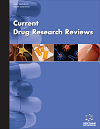
Full text loading...
Managing Parkinson's Disease (PD) presents formidable challenges due to the impermeability of the Blood-Brain Barrier (BBB), which severely restricts effective drug delivery. Traditional treatment modalities often prove inadequate, prompting the exploration of intranasal drug delivery as a novel and promising alternative. This innovative approach provides direct access to the central nervous system while bypassing the Blood-Brain Barrier (BBB). Recent advancements in nanotechnology, particularly the development of polymeric and lipidic Nanoparticles (NPs), significantly enhance this delivery method by improving mucoadhesion and drug uptake, resulting in elevated drug concentrations in the brain and improved symptomatology. Furthermore, the unique properties of NPs enable sustained drug release, maintaining effective pharmacological levels while minimizing systemic side effects. However, challenges such as potential toxicity, formulation stability, and scalability persist. This review elucidates the role of NPs in surmounting BBB obstacles and underscores the necessity for continued research to optimize their design and ensure long-term safety. As the field advances, intranasal delivery systems hold the promise of becoming pivotal tools in PD management, offering more effective and less invasive therapeutic options for patients.

Article metrics loading...

Full text loading...
References


Data & Media loading...

